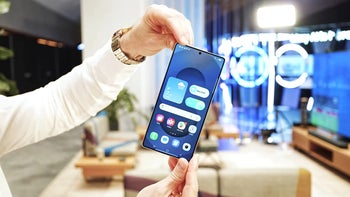Former Metro DM gives us the 411 about port number fraud committed by the T-Mobile unit

Over a week ago we passed along information that yours truly was given from a former Metro by T-Mobile rep explaining "illegal business practices." that he saw take place while he worked at a particular Metro store. One of the schemes involved a Metro District Manager who was able to obtain ported phone numbers through an outside source in order to place discounts on phones that would be sold to customers at a price artificially hiked by the sales team.
To prevent the hiked prices from attracting attention , the customer would be charged for the purchase of phone cases, screen protectors, chargers, speakers, and headphones even though the customer would walk out of the store with only a phone. While they were scanned by the store's POS system, the accessories were returned to inventory where they were sold again, this time for real.
To reiterate, ported phone numbers were obtained by a Metro rep in order to bring down the purchase price of a phone for a new customer. The customer would pay a higher price for the phone than the price charged for the same phone using a ported number. To make up the difference, accessories were rung up but not given to the customer who would leave the store with a new phone only. The accessories were placed back in inventory where they were sold again.
Today, I received an email from a former Metro District Manager who asked to be anonymous. Basically, the owners of certain Metro stores had a special team in charge of obtaining port numbers from a third party. Eventually, the owners of these stores owned other retail locations belonging to other prepaid brands and were able to get some port numbers from these stores. The head of the port numbers requested that the reps ring up more than $100 in fake accessories that would be charged to the customer with each sale related to the scheme.
"Also when a customer wanted to upgrade we had to pretty much make them get a new line so we can use a port number. Even with the simple free phones we had to upsell and quote them at $150/$200 just for a basic free phone. When we had a customer buy a 2-liner 3-liner or 4-liner (multiple lines/family plan) we had to upsell so we can add a tablet and telling the customer it was free when in reality it wasn’t."-Former Metro District Manager
The former DM took us through an example. If an iPhone 11 was free when porting over a number and a customer came in the store wanting a new line, the rep would price it at $300 instead of the real cost of $115-$120. The real cost of the transaction broke down like this:
- Phone-FREE
- First month-$60
- Insurance-$16 (mandatory)
- Taxes-$25-$30
While ringing up the purchase, an accessory code would be entered to assure those running the scheme that over $100 in false accessories were rung up. Another $50 in actual accessories had to be sold or the rep would pitch an additional line for $80 a month when the real price was $35. When a customer wanted to upgrade, the rep had to force the customer to get a new line so that a port number could be used.
The owners of the Metro stores that this former DM worked at were charged with fraud in other matters which we will not get into in order to keep the former Metro District Manager anonymous. Needless to say, using port numbers and accessories in order to scam Metro customers and help stores score additional profits seems to be an issue that T-Mobile needs to pay more than lip service to.
Follow us on Google News











Things that are NOT allowed:
To help keep our community safe and free from spam, we apply temporary limits to newly created accounts: